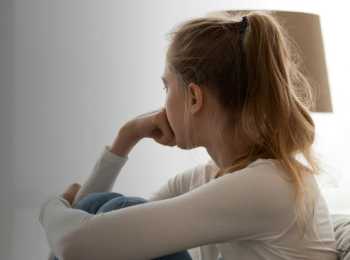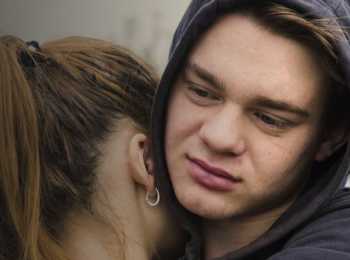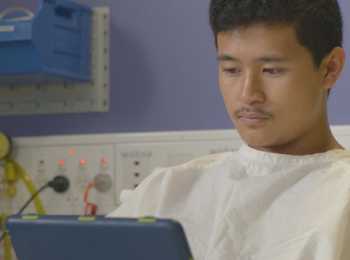Contents
Part 3
Beyond cancer
When you and your partner are stuck in the middle of treatment you might not have the energy to think about what will happen when it’s all finished.
While the end of treatment is a cause for celebration, it can also bring fear, anxiety and confusion about what the future holds.
Life has changed for both of you. Once treatment has finished, your partner will move into a stage often called survivorship. Figuring out what to do after cancer treatment is one of the hardest things for a cancer survivor to do. Your partner will need time and space to adjust. Cancer treatment can leave the body and mind pretty battered.
This may also be a tough time for you. You might expect them just to “get back to normal” and get on with it. You may feel frustrated that they can’t seem to get back to the way they were before. You may also feel like you have had to put your life on hold as well and that now treatment is over you just want to go back to the way it was before cancer gatecrashed your world.
Sometimes it’s only after treatment has finished that you take a breath and realise just what an emotional rollercoaster both of you have been on. You may have tried to be the “strong” one and hold it together for your partner, but once their treatment is over you might feel all sorts of things. It’s normal for you to have these thoughts and feelings. You are not a bad or selfish person.
Long term effects
Cancer treatment, as you have probably already worked out, can be pretty brutal. It can result in long-term effects (both physical and emotional).
Physical changes:
Fatigue
Fatigue is a feeling of tiredness or not having enough energy despite how much sleep you get. Many cancer survivors experience ongoing fatigue after their active treatment has finished. This can have a negative impact on their quality of life and also affect you.
For your partner, feeling like you are a young person trapped in an old person’s body can be very frustrating and feeling like you are living with an old person can be frustrating for you. You both may have to make adjustments to the way you do things to manage this.
"It took me a long time to learn how to be a girlfriend again and stop stepping into his “carer” mode so quickly."
(Louise, 24 years whose partner had cancer)
Your partner’s body
Your partner may have to deal with permanent physical changes from surgery, chemotherapy and radiotherapy. Some of them may be very obvious like a loss of a limb, breast, testicle or scars from surgery. These changes can impact on your partner’s self esteem, their confidence and adjustment to life after cancer.
Cognitive changes
Some cancers and treatments can result in cognitive changes, which means changes to the way people think, learn, process or remember information. People sometimes refer to this as “chemo fog” but other types of treatment can also have an impact. Changes in these abilities can be upsetting because they may affect many aspects of your partner’s life such as the ability to work or even to do everyday tasks that used to be routine.
This can also mean changes for you – having to take on extra tasks that you didn’t have to do before the cancer or feeling like they are not the same person you were used to. Your partner may also get frustrated because they can’t do things that they used to be able to do. Finding ways to manage these new challenges will take patience and open communication.
Emotional changes
It’s common for people who have survived cancer to experience long-term emotional effects related to their cancer experience. You may find that your partner experiences ongoing worries about the cancer returning and has other symptoms such as anxiety and depression. It’s important to encourage them to access appropriate support to help them deal with these thoughts and feelings. Canteen offers a free counselling service (visit canteen.org.au for more information).
It’s likely that you will continue to experience some of these fears and anxieties too and accessing support for yourself is also important.
The cancer experience doesn’t finish when treatment does. These long term effects can continue to impact on both of you. As with so many aspects of this whole experience, having realistic expectations, open communication, the right information and good support is important for you, your partner and your relationship.
"After we were thrust back into normal life, with David’s encouragement, I decided it was time to take active steps toward my own goals and dreams. David did the same with his own goals. Having an individual outside focus really helped us get back to being a normal couple...
I believe it has changed for the better, whenever we come across an everyday problems now we don’t dwell on it for long at all. Nothing seems like a big deal compared to the situation we were in at the height of her illness. We have seen how bad a day can get so now nothing seems impossible."
(Louise, 24 years whose partner had cancer)
If cancer returns
While doctors will have tried to give your partner the very best treatment, there is a chance that the cancer will come back. This may feel like you have both been dealt a seriously rough deal and it can seem like it’s the end of the world. You might wonder how the two of you are going to get through it again and if you have the strength to support your partner through this a second time.
The emotions you feel can be very powerful and overwhelming and you may wonder if everything you have been through before was for nothing. What sort of treatment your partner is offered will depend on what treatment they have had before as well as what type of cancer they have relapsed with and where. You can read more about this in the Now What…? A young person’s guide to dealing with cancer book.
Having done it all before might make it easier or it might be a whole lot harder because you know what you are in for. There will be decisions your partner will have to make about their treatment. You might both have different ideas on how to deal with this and it can be hard if you feel like you have no control.
While your feelings and reactions are valid, the reality is that it’s your partner’s right to make the decisions that are best for them.
Remember: Be kind to yourself and don't be afraid to get help
If treatment doesn't work
Most young people will survive their cancer treatment. Unfortunately, however, for some young people their cancer can’t be cured, despite the best treatment. Finding out that your partner’s cancer can’t be cured is one of the hardest things that you will ever have to deal with. You may want to yell and scream about how unfair it is or you may just want to hide away and shut everything out – whichever way you react is OK.
It’s important to remember that nothing you did, didn’t do, thought, felt or said had anything to do with the situation you are now facing. It’s just the brutal reality of a cancer diagnosis. And yes, it sucks big time.
Learning to live with the knowledge that your partner can’t be cured is never going to be easy. As with any shock it will take time for you to process what this means and how you are going to deal with it – and at the risk of repeating it once too often there is no right or wrong way to feel about this.
You may both try and protect each other by denying and pretending that it’s still all OK even though you know it isn’t. Trying to be honest and open can help you support each other through the anger, fear, sadness, anxiety and uncertainty.
It’s important to try and keep your relationship as normal as possible. Trying to make big changes now can just put extra strain on you. You may find that your relationship gets even stronger as you face this new reality together. But don’t be surprised if there are times when you both get angry with each other and need some time alone.
Dealing with other family members and friends will also take some negotiating. Everyone will be doing it tough and trying to make sense of it all. If there were strains in relationships before don’t expect them to just disappear – in fact they may get a whole lot worse. You may feel stuck in the middle or feel that your feelings and needs are being ignored.
Getting the right information and support will help you in supporting your partner in making decisions that are right for them and also help you to manage your own fears and uncertainties.
Self-care through this stage is also important. Remember that you are under a lot of emotional stress and you need to take care of yourself. Dying is really scary stuff. Find people you trust and who will be honest with you about what is happening.


















